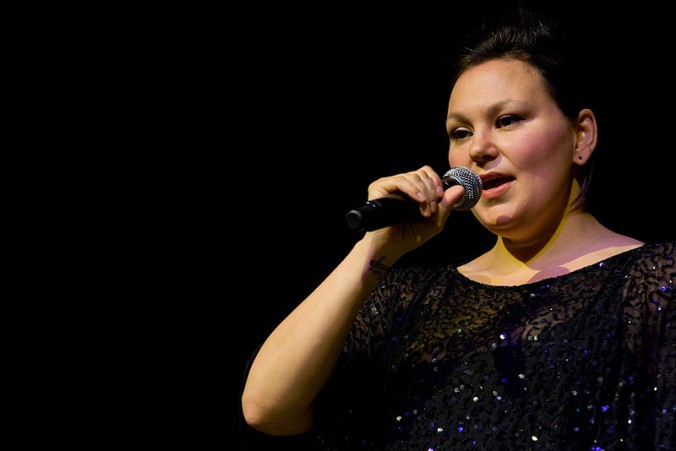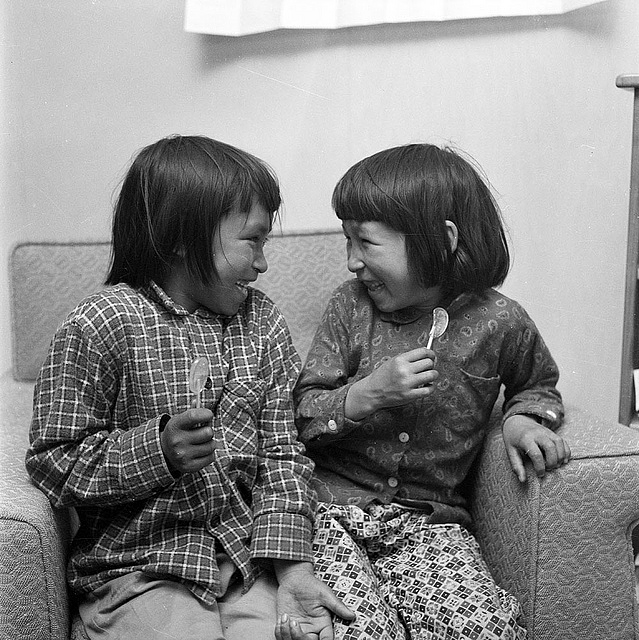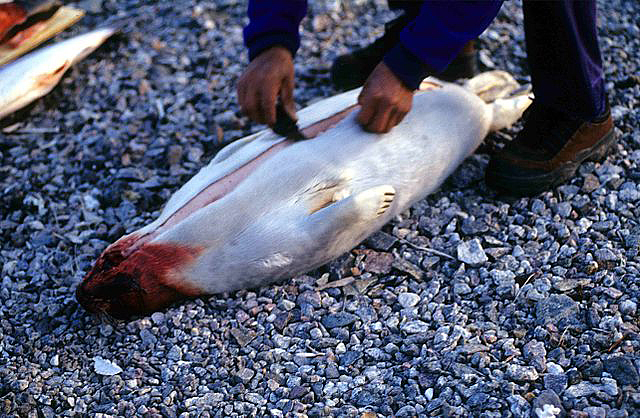Tanya Tagaq, the well-known Canadian throat singer, emphasized to an audience in St. John’s, Newfoundland, last week the importance of Inuit unity and reconciliation. In contrast to her normally guttural style of singing, Tagaq spoke softly. Nonetheless, as the keynote speaker at an Inuit Studies Conference, which was held on the campus of the Memorial University of Newfoundland, she presented her ideas forcefully.

An article in Nunatsiaq Online indicated that Tagaq is becoming an outspoken advocate for the indigenous rights of the Inuit, condemning the colonial policies and institutionalized racism that persist in her country. Raised in Cambridge Bay, she has become famous for her unique style of throat singing, but she is going beyond that.
Tagaq advocated that the Inuit should take charge of their own destiny. She called on all of them to ignore their differences and concentrate on developing their society together. She told her audience that people everywhere are trying to knock down the Inuit. Instead, she urged, “[we should] take these things into our own hands and demand change.” All too often the Inuit criticize one another for their failings, such as the fact that their young people are losing their language, Inuktitut. Instead, she argued, they should deal with this problem through the processes of sharing and learning together.

She strongly condemned the policies of the recent past when Canadian government agencies required Inuit children to attend residential schools in the provinces to the south of their Arctic homes. “What was done to children in residential school was so disturbing, it’s hard to talk about,” she said to her audience. “Years and years of trauma and torture and then sending them home with no language and no ability to parent,” she added, as if the cruelty is still hard to believe.
The news story does not indicate if Tagaq mentioned the work of the Truth and Reconciliation Commission of Canada, whose final report, issued in June last year, acknowledged the massive amounts of testimonies about the injustices perpetrated by the government and the proposals to finally heal the Inuit communities of their social and psychological injuries. The 94 recommendations of the commission were directed at actions governments in Canada should take.
She showed slides of her home community, Cambridge Bay, and her favorite places in that town when she was a child. She showed a picture of her own infant daughter posed next to a dead seal, an image which caused a storm of protest among animal lovers who are opposed to Inuit hunting the cute-looking animals. The anti-sealing forces protested volubly, but Tagaq was not swayed by the death threats and the petitions to take her children away from her.

She argued that seal hunting has always been an essential source of food for her people. “Before the seal ban, we were thriving, being able to provide for our families and buy hunting supplies and pay rent by doing what we’ve always done,” she said. She argued that the people have a right to secure food for themselves.
Tagaq appeared barefoot on the stage, as she often does when she gives concerts, and she had her little girl Inuuja beside her. The audience gave her a standing ovation.